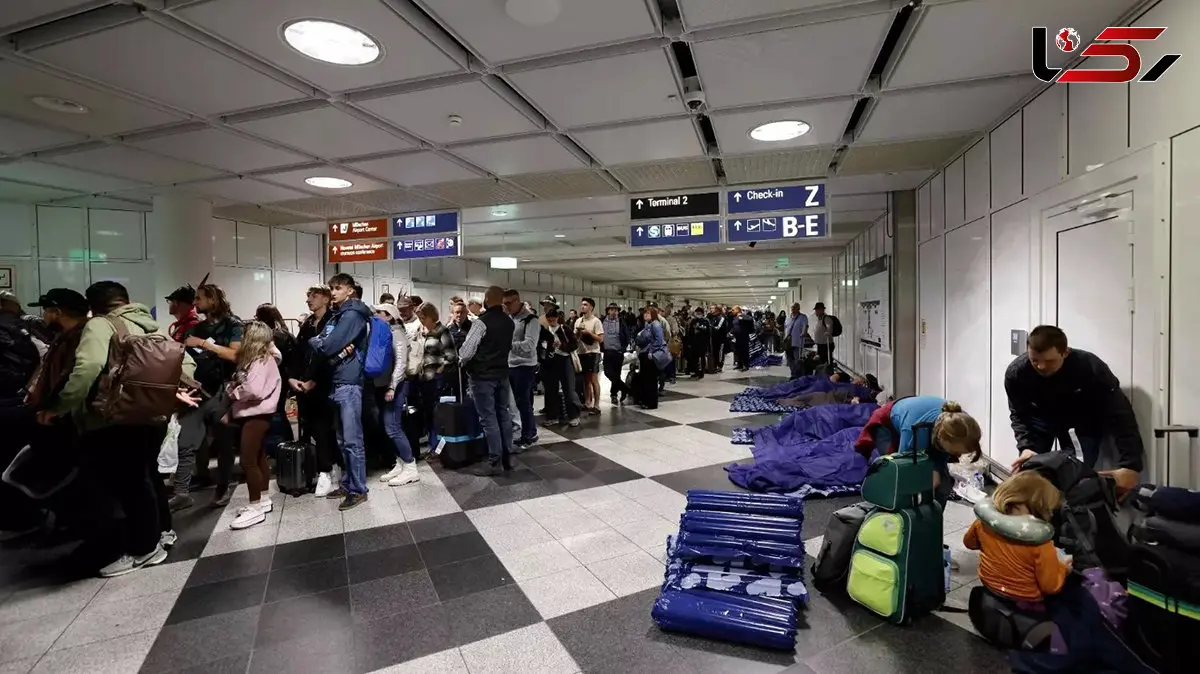Munich Airport Halts Flights for Second Consecutive Day After Drone Sightings
Rokna Political Desk: Munich Airport suspended flights for a second consecutive day after drones were spotted near runways, stranding more than 6,500 passengers and raising fresh security concerns across Europe.

According to Rokna, citing The Guardian, Munich Airport was forced to suspend operations for a second straight day on Friday following multiple drone sightings, leaving more than 6,500 passengers stranded and dozens of flights cancelled or diverted.
Similar disruptions have recently occurred at airports in Denmark, Norway, and Poland due to unidentified drones, while Romania and Estonia have accused Russia of involvement — an allegation Moscow has firmly denied.
According to a statement from Munich Airport, air traffic was restricted from 9:30 p.m. on Friday before being fully suspended. The incident forced 23 incoming flights to be diverted and 12 others bound for Munich to be cancelled. In addition, 46 scheduled departures were either cancelled or delayed until Saturday, affecting a total of around 6,500 travelers.
A police spokesperson confirmed “two simultaneous drone sightings” by patrol officers near the airport’s north and south runways shortly before 11 p.m., but said the drones quickly left the area before they could be identified.
The airport noted that, as on the previous night, temporary provisions were made for passengers, including camp beds, blankets, drinks, and snacks. Initially, flights were expected to resume at 5 a.m. Saturday, but the reopening was later postponed to 7 a.m.
The first disruption on Thursday evening led to the cancellation of more than 30 flights and stranded approximately 3,000 passengers. Police reported sightings of drones around 8:30 p.m. in areas near the airport, including the towns of Freising and Erding — the latter home to a German military airfield. Some drones were also reported flying over the facility, although this has not been officially confirmed.
Runway closures on Thursday lasted until midnight. Despite the deployment of police helicopters, authorities said no information was available about the type or number of drones involved.
German Interior Minister Alexander Dobrindt described the initial incident as a “wake-up call” regarding drone threats. He warned that “the race between drone threats and countermeasures is becoming increasingly difficult” and called for greater funding and research at both national and EU levels.
The latest disruption coincided with German Unity Day celebrations and preparations for the final weekend of Munich’s Oktoberfest, which attracts hundreds of thousands of visitors daily. The festival had already faced a half-day closure earlier in the week due to a bomb scare.
The German government is expected to approve new legislation on Wednesday allowing the military to shoot down drones if necessary. Bavarian State Premier Markus Söder stressed the urgency of such measures, saying, “We must be able to take down drones immediately instead of waiting,” and adding that police should also be granted this authority.
Meanwhile, increased drone activity in Denmark, Estonia, and Poland has intensified concerns that Russia’s war on Ukraine could spill over into neighboring European countries. Ukrainian President Volodymyr Zelenskyy warned that the incidents indicated Moscow’s intent to “escalate” its aggression.
Germany remains on heightened alert after reporting a swarm of drones over its territory last week, including flights over military and industrial sites. Denmark has also raised alarm, with Prime Minister Mette Frederiksen reaffirming that only one state poses a direct threat to European security — Russia.
Moscow has rejected all accusations, with President Vladimir Putin accusing Europe of fueling “hysteria” to justify increased defense spending.
Send Comments